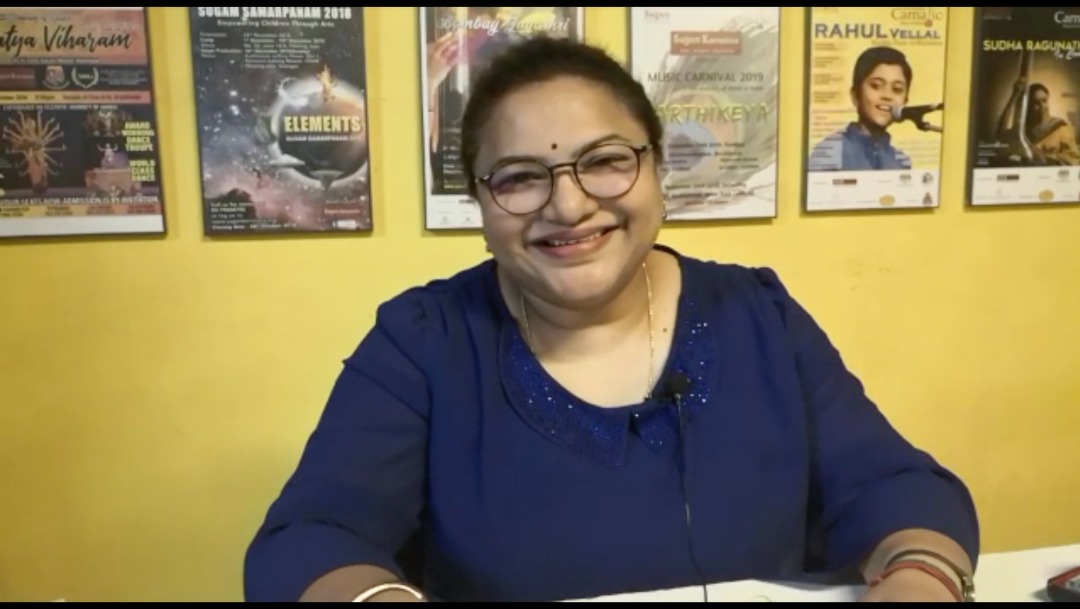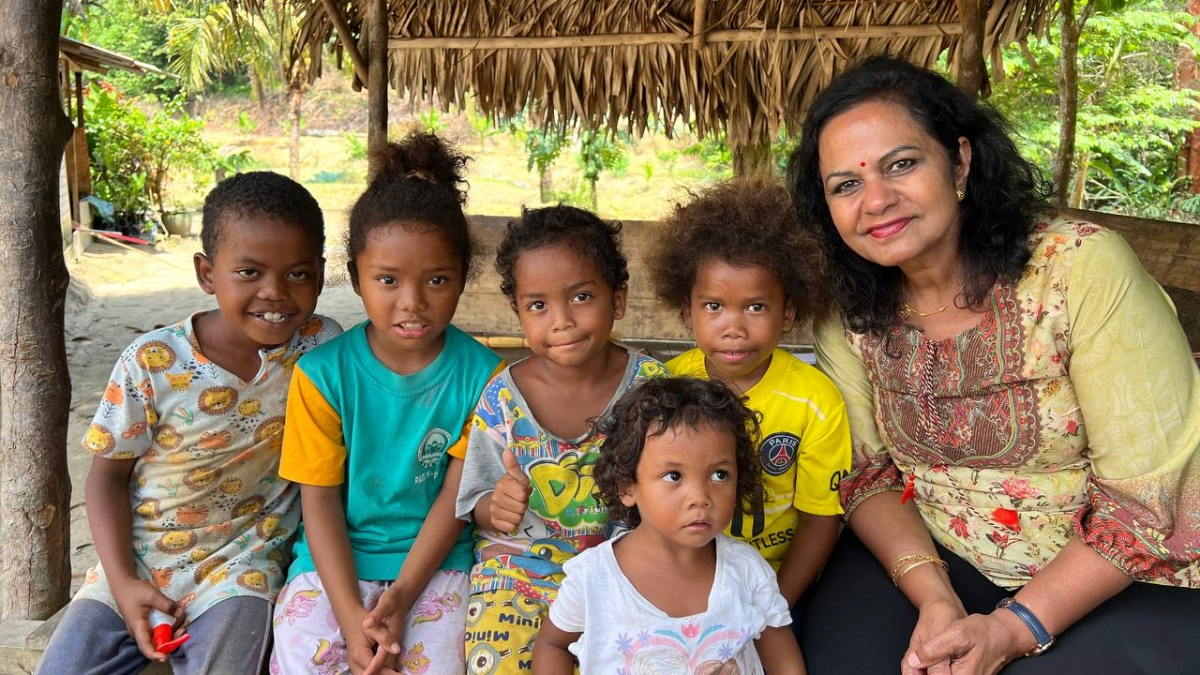J. Sujietra, the former head of RYTHM Foundation recalls the first time when she and other Foundation representatives approached government schools to talk about the Maharani programme and request them to recommend participants for the pilot project.
When she explained to the teachers how they were trying to help influence and shape the behavior of the teenage girls from marginalised communities, many were very skeptical.
“Some teachers told me that these girls cannot be changed and will not amount to much in their lives because of their background and the environment they lived in. They just didn’t believe that there was any hope for these girls, given their aggressive behavior and disinterest in studies,” she said.
Despite the concerns and skepticism amongst some schools and teachers, many schools were positive towards the programme and enrolled the girls to the first Maharani programme. The many NGOs whom they were working with, were also very encouraging and supportive of the initiative.

The impact was almost immediate.
“These same teachers came back and told us how surprised and amazed they were to see the changes in the girls and the improvements in their attitude and behaviour,” she added.
Sujietra, who headed RYTHM Foundation from 2010 to 2015, said the biggest battle was fighting the perception that there was nothing that could be done to change the lives or future of these girls.
“Some of the comments we heard included concerns that such a structured programme would not work for these girls in the long term. Even the language we used which was English, was a barrier they said. But we certainly proved them wrong. We wanted to set a certain standard, a certain benchmark for the girls and they certainly rose to the occasion!” she said.

“When the Foundation launched the Maharani programme it was never targeted at any individual race. We were very clear that it was targeted at those who needed it the most as the components of the programme was totally about development of girls. It so happens that the Malaysian Indian community are a minority and the area where we first launched the programme had a significant number of people from vulnerable backgrounds who belonged to the Indian community. So, we started with Indian girls from orphanages but later this was expanded to all races with the inclusion of local schools,” she said.
The Foundation chose to work with adolescent girls since studies have shown that the adolescent phase is the most troubling and difficult period for a girl. It is also the most impressionable age.
“We wanted to help them go through that tough period, so we worked on providing them the skills and knowledge for them to blossom into strong women. That was how the programme developed,” she said.
She said the programme’s pilot camp was held at the Forest Research Institute Managament (FRIM) in Kepong, Selangor in 2010, involving a total of 23 girls from orphanages, government and private schools.
Later, it was introduced to schools and students in rural areas to help the girls open their eyes to a world beyond their own. In 2010 alone, eight camps were held in different states involving a total of 653 girls.
“Mass media, whether its TV or movies, had a huge influence on the girls and without parental guidance, they absorbed everything without understanding how to discern right from wrong. When we talked to them, we realised that they were so used to looking at life through their thin, narrow lens, which was sometimes far removed from reality.” she said.
She also recalled the harrowing tales of sexual abuse from some of the young girls as they opened up about their personal struggles.
“It was shocking to hear the stories of sexual abuse. What was worse is many of the perpetrators were family members. In some cases, we were helpless because if we took drastic steps, the girls would lose their family and the only support system they have. So, we needed to approach things differently and we helped teach the girls how to stand up for themselves, how to defend themselves physically and most importantly how to say no right from the beginning, because many of them don’t even realise its wrong.” she said.

Today, even though it has been five years since Sujietra moved on from the Foundation, she makes it a point to read the stories about the Maharani girls, on the RF website and social media platforms.
“Stories of their achievement and success makes me proud and happy. We planted the seed many years ago and it is now blossoming. I am happy for the girls who have made something good out of their lives,” she said.
Sujietra also hopes to see the Maharani programme replicated in more communities and its impact spread further.
“Maharani sows the seeds that we see as flowers today. It must continue to plant seeds as there is always a girl who needs that guidance and help,” she said.

Sujietra noted how every girl who attended the first camp, went home smiling.
“Firstly, because they thought they were important enough to be called for a programme and that they were now part of something, a programme that was specially crafted for them,” she said.
The Maharani programme which began in 2010 has helped over 7,500 girls from poor and marginalised communities. It provides the girls with skills and knowledge to enable them to achieve their full potential.
This article is part of the series to share the journey of Maharani’s 10th anniversary.
 The impact was almost immediate.
“These same teachers came back and told us how surprised and amazed they were to see the changes in the girls and the improvements in their attitude and behaviour,” she added.
Sujietra, who headed RYTHM Foundation from 2010 to 2015, said the biggest battle was fighting the perception that there was nothing that could be done to change the lives or future of these girls.
“Some of the comments we heard included concerns that such a structured programme would not work for these girls in the long term. Even the language we used which was English, was a barrier they said. But we certainly proved them wrong. We wanted to set a certain standard, a certain benchmark for the girls and they certainly rose to the occasion!” she said.
The impact was almost immediate.
“These same teachers came back and told us how surprised and amazed they were to see the changes in the girls and the improvements in their attitude and behaviour,” she added.
Sujietra, who headed RYTHM Foundation from 2010 to 2015, said the biggest battle was fighting the perception that there was nothing that could be done to change the lives or future of these girls.
“Some of the comments we heard included concerns that such a structured programme would not work for these girls in the long term. Even the language we used which was English, was a barrier they said. But we certainly proved them wrong. We wanted to set a certain standard, a certain benchmark for the girls and they certainly rose to the occasion!” she said.
 “When the Foundation launched the Maharani programme it was never targeted at any individual race. We were very clear that it was targeted at those who needed it the most as the components of the programme was totally about development of girls. It so happens that the Malaysian Indian community are a minority and the area where we first launched the programme had a significant number of people from vulnerable backgrounds who belonged to the Indian community. So, we started with Indian girls from orphanages but later this was expanded to all races with the inclusion of local schools,” she said.
The Foundation chose to work with adolescent girls since studies have shown that the adolescent phase is the most troubling and difficult period for a girl. It is also the most impressionable age.
“When the Foundation launched the Maharani programme it was never targeted at any individual race. We were very clear that it was targeted at those who needed it the most as the components of the programme was totally about development of girls. It so happens that the Malaysian Indian community are a minority and the area where we first launched the programme had a significant number of people from vulnerable backgrounds who belonged to the Indian community. So, we started with Indian girls from orphanages but later this was expanded to all races with the inclusion of local schools,” she said.
The Foundation chose to work with adolescent girls since studies have shown that the adolescent phase is the most troubling and difficult period for a girl. It is also the most impressionable age.
 Today, even though it has been five years since Sujietra moved on from the Foundation, she makes it a point to read the stories about the Maharani girls, on the RF website and social media platforms.
Today, even though it has been five years since Sujietra moved on from the Foundation, she makes it a point to read the stories about the Maharani girls, on the RF website and social media platforms.
 Sujietra noted how every girl who attended the first camp, went home smiling.
Sujietra noted how every girl who attended the first camp, went home smiling.





